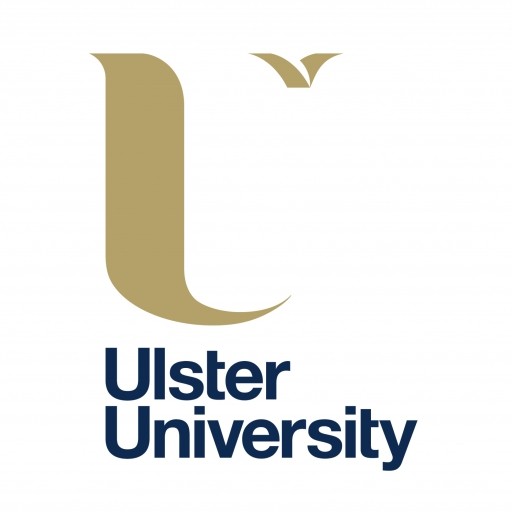Photos of university
Land Use and Environmental Management at Queen's University Belfast offers an in-depth exploration of sustainable land utilization, environmental preservation, and sustainable development practices. This programme integrates principles from ecology, geography, urban planning, and environmental science to equip students with the knowledge and skills necessary to address complex land use challenges in a rapidly changing world. Students will study topics such as environmental impact assessment, spatial planning, resource management, GIS applications, policy development, and sustainable development strategies. Through a combination of theoretical instruction and practical fieldwork, learners will develop a comprehensive understanding of the socio-economic and environmental factors influencing land use decisions. The curriculum emphasizes the importance of balancing human needs with environmental conservation, preparing graduates for careers in environmental consultancy, land planning, policy analysis, and environmental management agencies. The programme encourages critical thinking, problem-solving, and effective communication, fostering the ability to develop innovative solutions to environmental issues. It also offers opportunities for research projects and collaborations with industry and government organizations, providing valuable real-world experience. Graduates of Land Use and Environmental Management will be equipped to contribute to sustainable development practices both locally and globally, supporting the creation of resilient communities and healthy ecosystems.
Detailed Course Facts
Application deadline January 15 Tuition fee- EUR 4160 Year (EEA)
- EUR 13380 Year (Non-EEA)
England, Scotland and Wales £9,000; EU £3,575; International: £11,500
Start date September 2015 Duration full-time 36 months Languages Take an IELTS test- English
Course Content
These degree programmes have been developed in consultation with employers, industry and academics, to offer students a curriculum designed to enhance employability and graduate skills, combining basic scientific knowledge with interpersonal, entrepreneurial, innovative thinking and management skills.
Core modules in environmental management are supplemented with a wide range of optional modules, from environmental planning, geography, biology, economics, sociology and politics and international studies, enabling an in-depth study of subject threads throughout the programme. Students must take the equivalent of at least six modules in each stage, including any compulsory modules.
Stage 1
CompulsoryIntroduction to Spatial Planning
Skills for Land Use and Environmental ManagementOptionalAccounting for Non-Specialists
Biological Diversity
Contemporary Issues in Urban and Rural Planning
Dynamic Earth
Economics 1
Environmental Biology
Environmental Issues: A Geographical Perspective on a Changing World
Institutional and Policy Context of Planning Practice
Spaces, Places and Plans
Statistical Methods
The Individual and Society
The Sociological Imagination
Stage 2
CompulsoryClimate Change: Science, Impacts and Responses
Environmental Management
Introduction to Environmental Economics
Work Placement (3-yr programme)
1-year Work Placement (4-yr programme)OptionalApplied Ecology
Contemporary Society
Development of Social Theory
Economy and Space
Geographies of Urban Development
Invertebrate Biology
Microeconomics
Planning and Sustainable Development 2
Planning Theory and Society
Politics and Policy of the European Union
Sustaining the Biosphere
The Development of Social Theory
Stage 3
CompulsoryBusiness Innovation and Entrepreneurship
Environmental Assessment
Global Issues in Agriculture
Policies for Environmental Sustainability
Project
OptionalCoastal Environments
Contaminated Land
Economics of the Environment
Economics of the Public Sector
Environmental Engineering
Geoforensics
Infrastructure and Transportation
Themes in Spatial Planning
English Language Requirements
IELTS band : 6.5
To study at this university, you have to speak English. We advice you to
take an IELTS test. More About IELTSRequirements
-
A-level BBB or BBC + B (AS-level) + GCSE Mathematics.
Note: Certain modules will require GCSE Mathematics grade B. -
Irish Leaving Certificate B2B2B2B2CC/B2B2B2B2B2 + if not offered at Higher Level then Ordinary Level grade C in Mathematics.
Note: Certain modules require either an Ordinary Level grade B or Higher Level grade C in Mathematics.
Work Experience
No work experience is required.
Related Scholarships*
- Academic Excellence Scholarship
"The Academic Excellence Scholarship can provide up to a 50 % reduction in tuition per semester. These scholarships will be renewed if the student maintains superior academic performance during each semester of their 3-year Bachelor programme. The scholarship will be directly applied to the student’s tuition fees."
- Access Bursary
Bursary for UK students all subjects where the variable tuition fee rate is payable.
- Alumni Bursary
Alumni Bursary for UK Undergraduate students
* The scholarships shown on this page are suggestions first and foremost. They could be offered by other organisations than Queen's University Belfast.
Accreditation
These degrees are accredited by The Royal Institution of Chartered Surveyors (RICS).









